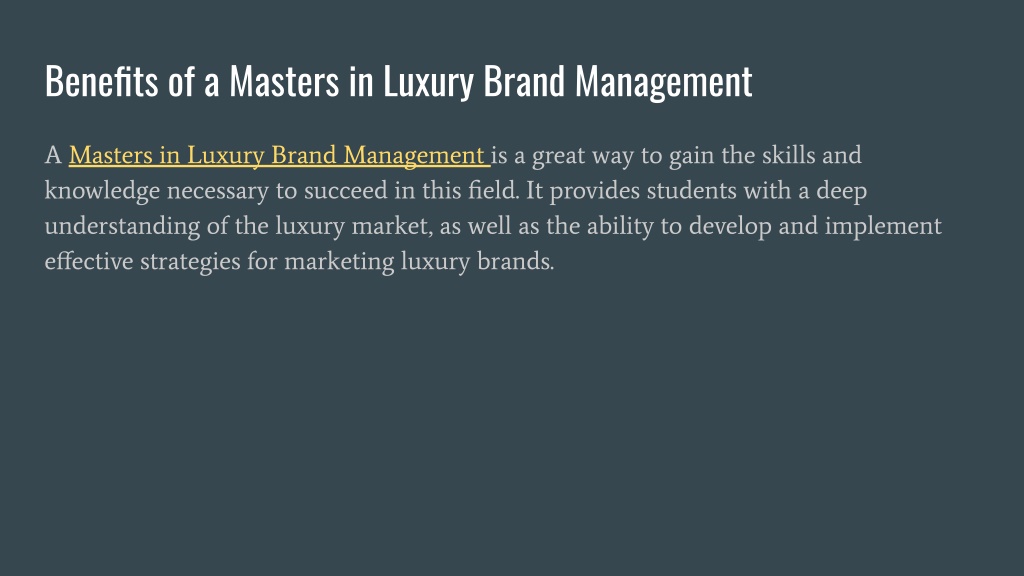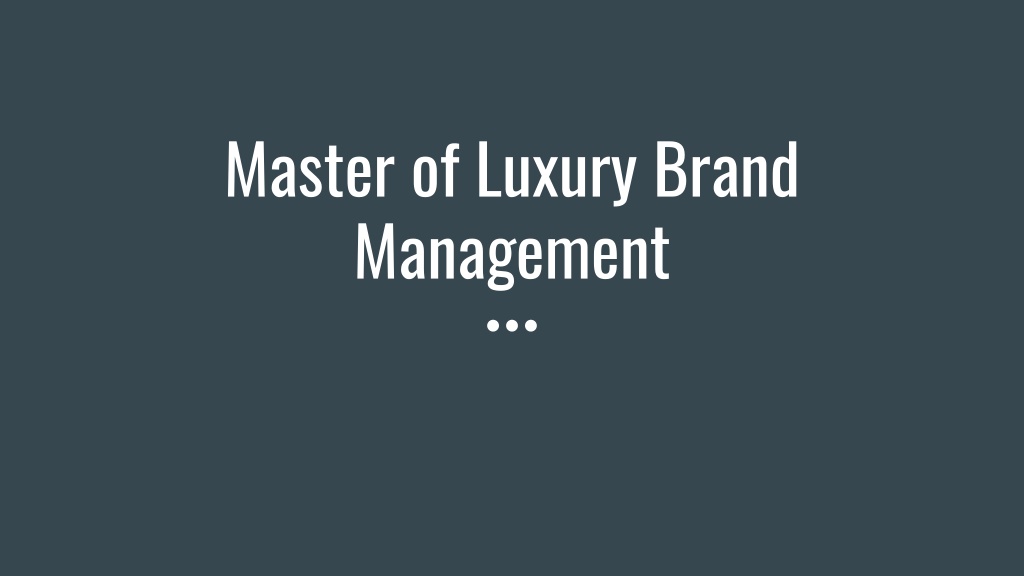The Ultimate Guide To Luxury Brand Management

Introduction to Luxury Brand Management
Luxury brand management is a crucial aspect of the modern market. It involves strategically managing brands that embody exclusivity, prestige, and high-quality products. In a world where consumer preferences shift rapidly, understanding luxury brand management is essential for success. This guide will delve into key strategies, trends, and challenges in luxury branding, highlighting the influence of industry leaders like François-Henri Pinault.

The Role of François-Henri Pinault in Luxury Branding
François-Henri Pinault, CEO of Kering, has significantly impacted luxury branding. His vision focuses on merging creativity with sustainability, setting a new standard for luxury brands. Under his leadership, Kering has transformed established brands like Gucci and Yves Saint Laurent, emphasizing innovation and craftsmanship.
Vision and Leadership Style
Pinault's approach emphasizes the importance of brand identity. He champions the idea that luxury brands must maintain authenticity while adapting to contemporary consumer needs. For example, the resurgence of Gucci under his guidance showcases how a brand can revitalize its image while staying true to its heritage.
Key Strategies in Luxury Brand Management
Effective luxury brand management relies on several strategies. Let's explore the most critical aspects, including brand equity, customer experience, and digital innovation.
Building Brand Equity
Brand equity is vital in luxury brand management. It refers to the value a brand adds to a product. Luxury brands like Louis Vuitton demonstrate strong brand equity through their iconic monograms and timeless designs. According to Deloitte Insights, brands that invest in storytelling and heritage see higher consumer loyalty and engagement.
Enhancing Customer Experience
Customer experience is another crucial component. Luxury consumers expect personalized interactions and exceptional service. A prime example is Chanel, which focuses on creating memorable experiences in its boutiques. By offering tailored services, Chanel enhances consumer loyalty, fostering a deeper emotional connection with its clientele.
Embracing Digital Innovation
Digital transformation is reshaping the luxury market. Brands are increasingly leveraging online platforms and social media to reach younger consumers. For instance, Balenciaga's innovative digital campaigns have attracted a global audience, showcasing how luxury brands can thrive in the digital age.

Current Trends in the Luxury Market
As we approach 2025, several trends are shaping the luxury market. Understanding these trends is essential for effective luxury brand management.
Sustainability in Luxury
Sustainability is becoming a priority for luxury brands. Consumers are increasingly aware of environmental issues and prefer brands that demonstrate social responsibility. For example, Stella McCartney has long been a pioneer in sustainable fashion, using eco-friendly materials and practices. This trend is not just a passing phase; it's a fundamental shift in consumer behavior.
Digital Transformation
Digital transformation continues to influence the luxury sector. Brands are investing in e-commerce and digital marketing strategies to reach a broader audience. According to McKinsey & Company, luxury e-commerce is expected to grow significantly by 2025, making it essential for brands to develop robust online strategies.

Challenges in Luxury Brand Management
Despite the opportunities, luxury brand management faces several challenges. Addressing these issues is crucial for long-term success.
Competition and Market Saturation
The luxury market is becoming increasingly competitive. New entrants and established brands vie for market share, leading to market saturation. To stand out, brands must differentiate themselves through unique value propositions and innovative strategies.
Adapting to Changing Consumer Behavior
Consumer behavior in the luxury market is evolving. Younger generations prioritize experiences over possessions, which challenges traditional luxury branding. Brands must adapt their strategies to resonate with these consumers while maintaining their core values.
Conclusion
In conclusion, luxury brand management is a multifaceted discipline that requires a deep understanding of consumer behavior, market trends, and effective strategies. As we've explored, leaders like François-Henri Pinault play a pivotal role in shaping the landscape of luxury branding. By focusing on brand equity, enhancing customer experiences, and embracing sustainability, luxury brands can navigate the complexities of the modern luxury market.
For marketing professionals and aspiring luxury brand managers, mastering these elements is essential. Start implementing these strategies today and stay ahead in the ever-evolving luxury landscape.
Call to Action
To learn more about effective luxury branding strategies, explore our in-depth resources on luxury branding strategies and consumer behavior in the luxury market. Discover how sustainable luxury brands are making a difference by visiting our section on sustainable luxury brands.
By staying informed and adapting to trends, you can position your brand for success in the luxury market.
